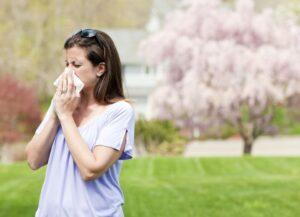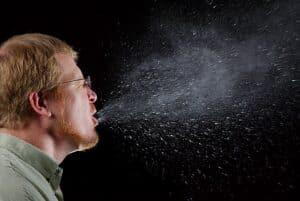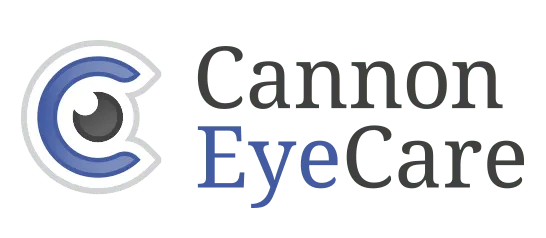Hay Fever Treatment Seattle

What is ‘Hay fever’?
Hay fever is a common form of allergy caused by pollen, dust or mold that results in the eyes and nose becoming itchy and inflamed. You may also experience a runny nose, a sore throat, a mild cough, and swollen, red, watery eyes. Hay fever is also known as seasonal allergy, allergic rhinitis, or – when talking specifically about its effect on eyes – allergic conjunctivitis. If you need hay fever treatment in Seattle, let this post be your guide. We will discuss hay fever treatments and worst-case scenarios/best-case scenarios in this brief article.

I’m also concerned about untreated hay fever because, as I write this post in March of 2021, we are in the middle of the COVID-19 pandemic. If there’s anything we want less of in a pandemic, it’s:
1. Sneezing in public
2. Coughing incessantly
3. People constantly rubbing their eyes because they itch like crazy
How common is hay fever?
• Studies show that about 7.8% of U.S. adults have hayfever.
• In a 2010 study, 10% of white children in the U.S had hayfever, while 7% of black children did.
• Worldwide, allergic rhinitis affects between 10% and 30% of the population.
How can you tell allergies from the common cold?
• Itchy, watery, red eyes are very common allergy symptoms of “hay fever”.
• Nobody gets a fever from allergies, but a bad cold can lead to a fever
• A sore throat is much more common with a cold than with allergies, but can occur with both conditions.
• Seasonality is important. If you experience the same symptoms year after year in March or April, that’s probably seasonal allergies.
Some patients only get allergies in certain parts of the country. Does location matter?
In short, yes. Location matters a lot. Our immune systems will typically become used to the pollens and molds that are endemic in our youth. So, if we don’t move to different regions much, things should not get out of hand.
Often, if you get acclimated to plant pollens, etc. in the Pacific NorthWest when you are young, you won’t have severe allergy issues in the NorthWest later. If you move elsewhere later in life, like to the desert Southwest, your immune system will experience a whole new set of plant pollens and likely some new molds too.
During the first year in a new region, your immune system is gathering info. Then it stores this information for future reference. The second year and every year thereafter is when you should expect allergies to the plants of that region to pop up, if you are susceptible.
Should I go to an allergy clinic or to an eye clinic that handles medical eye issues?
It’s worth stating the obvious here. Allergy clinics are booked up during allergy season. Plus, if your main symptoms are eye-related, you’ll receive a better exam and hay fever treatments at a Seattle eye clinic anyway.
What medical treatments are available without a prescription?
Let’s assume that you’re a patient with allergic conjunctivitis (red, itchy, watery eyes typically seen in the spring). These patients have their symptoms resolved most efficiently with a 1, 2, 3-punch treatment. The beauty of this treatment protocol is that it’s over-the-counter and therefore pretty inexpensive.
1. Eye drops (1-2 drops per day of Lastacaft, Zaditor, Alaway, or Pataday) are the treatment of choice for ocular symptoms.
2. Oral medications (Zyrtec, Claritin, Allegra) are extremely helpful in providing around the clock coverage
3. Nasal corticosteroids (Flonase, Nasacort) are necessary in a large percentage of cases. They carry a little higher risk than the drops and orals and thus should be used judiciously. Over-use of nasal steroid sprays can cause problems such as localized swelling in the macula (central retina).
Are there any effective non-medical interventions?
Surprisingly, yes. Many of our patients are able to control the symptoms of hay fever without the use of medicines. These non-pharmaceutical ideas can also help patients who are utilizing the medical treatments outlined above. Treating ocular allergies without medicines largely involves avoiding exposure. Measures like keeping the windows shut, using an air purifier in the bedroom, washing your hair before bed to remove pollen, and maybe throwing a blanket over your sheets and pillowcase every morning will help. Many of our patients get significant relief from artificial tears used in combination with a saline nasal spray such as Oceans.
Clearly, if your allergies go bonkers in the Midwest, but you do fine on the West Coast, then go West. Then, avoid trips back to the Midwest in the spring and summer.
In conclusion, let’s consider best-case scenarios and worst cases too.
Worst-case scenario: You sneeze on a stranger, or they sneeze on you. Sneezing on somebody is a big deal that we need to avoid, even if it’s not during a global pandemic. Sneezing into a mask is also a rather unpleasant experience.
Best-case scenario: If you are going out in public, let’s proactively treat your hay fever to keep you from sneezing and dripping tears all over town. Not only will you potentially be less infectious, but you’ll also feel much better without allergy symptoms.
How would an eye care clinic in Seattle help with hay fever?
Cannon EyeCare (at Market Optical) is a group of two eye care centers that helps patients with seasonal allergies.
If hay fever is disrupting your life, you may want to give us a call today or just book online.
Cannon EyeCare offers hay fever treatment and eye exams in Seattle which should bring you relief for common allergy symptoms and more. Hay fever can really make people feel terrible, like a cold that lasts for months. Let your local optometrist help you feel well by booking an exam today.
For more information or to schedule an appointment, contact us today!
(206)448-7739 at Pike Place’s Market Optical (downtown Seattle)
(206) 522-9323 at University Village
About Us
We are a leading provider of comprehensive eye care services in Seattle. We look forward to providing you with the highest level of eye care available. Our goal will be to answer all of your questions and explain your eye health options as we strive for a long-term relationship that improves your vision and enhances your eye health. Our eye care practice is dedicated to patient education, disease prevention, and comprehensive treatment for all our Seattle area patients.
Cannon EyeCare has become one of the most highly rated eye care practices in the Seattle metro area based on our years of experience with patients of all ages. We have discovered that good health is more than just the absence of disease or illness. Our patients are individuals with unique eye care needs as well as individual goals for their eye care treatment.

What is ‘Hay fever’?
Hay fever is a common form of allergy caused by pollen, dust or mold that results in the eyes and nose becoming itchy and inflamed. You may also experience a runny nose, a sore throat, a mild cough, and swollen, red, watery eyes. Hay fever is also known as seasonal allergy, allergic rhinitis, or – when talking specifically about its effect on eyes – allergic conjunctivitis. If you need hay fever treatment in Seattle, let this post be your guide. We will discuss hay fever treatments and worst-case scenarios/best-case scenarios in this brief article.

I’m also concerned about untreated hay fever because, as I write this post in March of 2021, we are in the middle of the COVID-19 pandemic. If there’s anything we want less of in a pandemic, it’s:
1. Sneezing in public
2. Coughing incessantly
3. People constantly rubbing their eyes because they itch like crazy
How common is hay fever?
• Studies show that about 7.8% of U.S. adults have hayfever.
• In a 2010 study, 10% of white children in the U.S had hayfever, while 7% of black children did.
• Worldwide, allergic rhinitis affects between 10% and 30% of the population.
How can you tell allergies from the common cold?
• Itchy, watery, red eyes are very common allergy symptoms of “hay fever”.
• Nobody gets a fever from allergies, but a bad cold can lead to a fever
• A sore throat is much more common with a cold than with allergies, but can occur with both conditions.
• Seasonality is important. If you experience the same symptoms year after year in March or April, that’s probably seasonal allergies.
Some patients only get allergies in certain parts of the country. Does location matter?
In short, yes. Location matters a lot. Our immune systems will typically become used to the pollens and molds that are endemic in our youth. So, if we don’t move to different regions much, things should not get out of hand.
Often, if you get acclimated to plant pollens, etc. in the Pacific NorthWest when you are young, you won’t have severe allergy issues in the NorthWest later. If you move elsewhere later in life, like to the desert Southwest, your immune system will experience a whole new set of plant pollens and likely some new molds too.
During the first year in a new region, your immune system is gathering info. Then it stores this information for future reference. The second year and every year thereafter is when you should expect allergies to the plants of that region to pop up, if you are susceptible.
Should I go to an allergy clinic or to an eye clinic that handles medical eye issues?
It’s worth stating the obvious here. Allergy clinics are booked up during allergy season. Plus, if your main symptoms are eye-related, you’ll receive a better exam and hay fever treatments at a Seattle eye clinic anyway.
What medical treatments are available without a prescription?
Let’s assume that you’re a patient with allergic conjunctivitis (red, itchy, watery eyes typically seen in the spring). These patients have their symptoms resolved most efficiently with a 1, 2, 3-punch treatment. The beauty of this treatment protocol is that it’s over-the-counter and therefore pretty inexpensive.
1. Eye drops (1-2 drops per day of Lastacaft, Zaditor, Alaway, or Pataday) are the treatment of choice for ocular symptoms.
2. Oral medications (Zyrtec, Claritin, Allegra) are extremely helpful in providing around the clock coverage
3. Nasal corticosteroids (Flonase, Nasacort) are necessary in a large percentage of cases. They carry a little higher risk than the drops and orals and thus should be used judiciously. Over-use of nasal steroid sprays can cause problems such as localized swelling in the macula (central retina).
Are there any effective non-medical interventions?
Surprisingly, yes. Many of our patients are able to control the symptoms of hay fever without the use of medicines. These non-pharmaceutical ideas can also help patients who are utilizing the medical treatments outlined above. Treating ocular allergies without medicines largely involves avoiding exposure. Measures like keeping the windows shut, using an air purifier in the bedroom, washing your hair before bed to remove pollen, and maybe throwing a blanket over your sheets and pillowcase every morning will help. Many of our patients get significant relief from artificial tears used in combination with a saline nasal spray such as Oceans.
Clearly, if your allergies go bonkers in the Midwest, but you do fine on the West Coast, then go West. Then, avoid trips back to the Midwest in the spring and summer.
In conclusion, let’s consider best-case scenarios and worst cases too.
Worst-case scenario: You sneeze on a stranger, or they sneeze on you. Sneezing on somebody is a big deal that we need to avoid, even if it’s not during a global pandemic. Sneezing into a mask is also a rather unpleasant experience.
Best-case scenario: If you are going out in public, let’s proactively treat your hay fever to keep you from sneezing and dripping tears all over town. Not only will you potentially be less infectious, but you’ll also feel much better without allergy symptoms.
How would an eye care clinic in Seattle help with hay fever?
Cannon EyeCare (at Market Optical) is a group of two eye care centers that helps patients with seasonal allergies.
If hay fever is disrupting your life, you may want to give us a call today or just book online.
Cannon EyeCare offers hay fever treatment and eye exams in Seattle which should bring you relief for common allergy symptoms and more. Hay fever can really make people feel terrible, like a cold that lasts for months. Let your local optometrist help you feel well by booking an exam today.
For more information or to schedule an appointment, contact us today!
(206)448-7739 at Pike Place’s Market Optical (downtown Seattle)
(206) 522-9323 at University Village
About Us
We are a leading provider of comprehensive eye care services in Seattle. We look forward to providing you with the highest level of eye care available. Our goal will be to answer all of your questions and explain your eye health options as we strive for a long-term relationship that improves your vision and enhances your eye health. Our eye care practice is dedicated to patient education, disease prevention, and comprehensive treatment for all our Seattle area patients.
Cannon EyeCare has become one of the most highly rated eye care practices in the Seattle metro area based on our years of experience with patients of all ages. We have discovered that good health is more than just the absence of disease or illness. Our patients are individuals with unique eye care needs as well as individual goals for their eye care treatment.
Pike Place Office
1906 Pike Pl Unit 8-b,
Seattle, WA 98101
University Village Office
2602 NE University Village St,
Seattle, WA 98105
Pike Place Office Hours
Monday
Closed
Tuesday
10:00 am - 5:00 pm
Wednesday
Closed
Thursday
10:00 am - 5:00 pm
Friday
10:00 am - 5:00 pm
Saturday
10:00 am - 5:00 pm
Sunday
Closed
University Village Office Hours
Monday
10:00 am - 6:00 pm
Tuesday
10:00 am - 6:00 pm
Wednesday
10:00 am - 6:00 pm
Thursday
10:00 am - 6:00 pm
Friday
10:00 am - 6:00 pm
Saturday
10:00 am - 6:00 pm
Sunday
Closed
